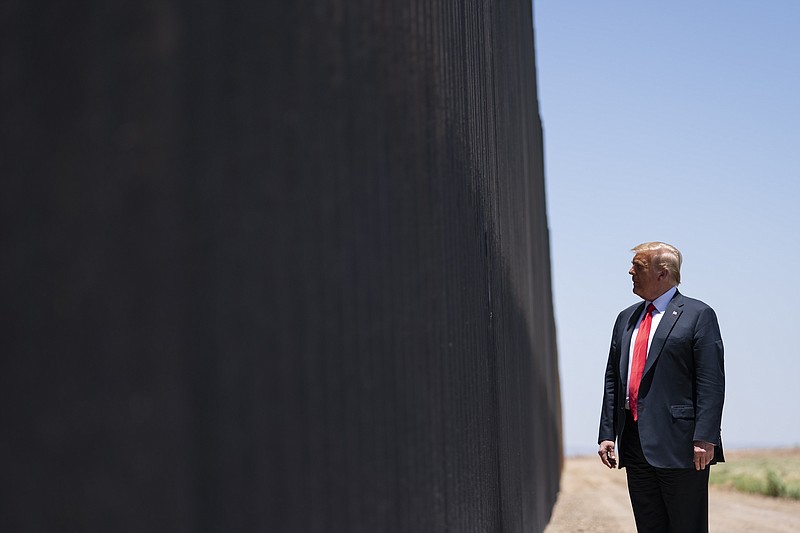What would America be like today if President Donald Trump had acted decisively in January to tackle the coronavirus, as soon as he was briefed on the danger?
One opportunity for decisive action came Jan. 28, when his national security adviser, Robert C. O'Brien, told Trump that the coronavirus "will be the biggest national security threat you face in your presidency." Trump absorbed the warning, telling Bob Woodward days later how deadly and contagious the virus could be, according to Woodward's new book, "Rage."
Yet the president then misled the public by downplaying the virus, comparing it to the flu and saying that it would "go away." He resisted masks, sidelined experts, held large rallies, denounced lockdowns and failed to get tests and protective equipment ready - and here we are, with Americans constituting 4% of the world's population and 22% of COVID-19 deaths.
There's plenty of blame to be directed as well at local officials, nursing home managers and ordinary citizens - but Trump set the national agenda.
Suppose Trump in January - or even in February - had warned the public of the dangers, had ensured that accurate tests were widely distributed (Sierra Leone had tests available before the United States) and had built up a robust system of contact tracing (Congo has better contact tracing than the United States).
Suppose he had ramped up production of masks and empowered the Centers for Disease Control and Prevention to lead the pandemic response, instead of marginalizing its experts.
Suppose he had tried as relentlessly to battle the virus as he has to build his wall?
The United States would still have made mistakes. We focused too much on ventilators and not enough on other things that might have been more useful, like face masks, blood thinners and high-flow nasal cannulas. Because of mask shortages, health messaging about their importance was bungled. Governors and mayors dithered, and nursing homes weren't adequately protected.
But many of our peer countries did better than we did not because they got everything right but because they got some things right - and then learned from mistakes.
Because of COVID-19, Trump called himself a wartime president, but he didn't heed his generals and never ordered ammunition.
It wasn't as if the United States was unready. A 324-page study in October found that America was the best-prepared country in the world for a pandemic - but it didn't imagine that the United States would fumble testing, data collection, contact tracing, communications and just about every other facet of managing a novel virus.
Natalie Dean, an expert in infectious diseases at the University of Florida, said she is troubled by a public fatigue, a desensitization to a death toll that has continued to pile up recently at the rate of about 1,000 a day.
Trump still hasn't embraced the basic step public health officials sought more than a century ago during the 1918 pandemic of encouraging mask-wearing. Instead, he seems to have surrendered to the virus at least until a vaccine is available - while encouraging delusions among his supporters.
"There's no COVID," an unmasked man attending a Trump rally the other day told CNN. "It's a fake pandemic."
When a pandemic response has become so politicized, when leadership is so absent, when health messaging is so muddled, when science is so marginalized, it's easier to understand how the best-prepared country in the world for a pandemic could have lost 190,000 citizens to the virus.
The New York Times
